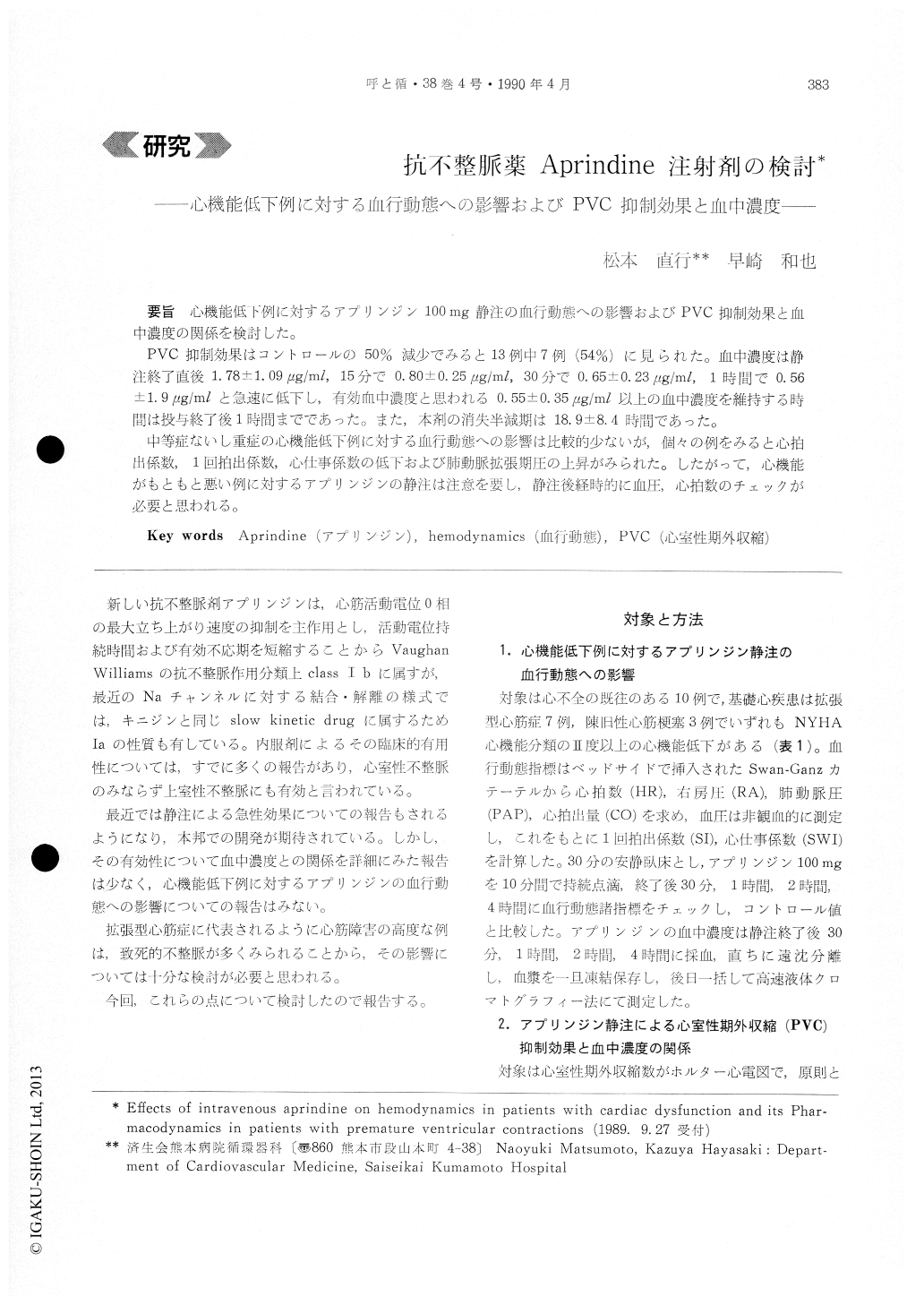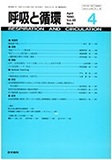Japanese
English
- 有料閲覧
- Abstract 文献概要
- 1ページ目 Look Inside
心機能低下例に対するアプリンジン100mg静注の血行動態への影響およびPVC抑制効果と血中濃度の関係を検討した。
PVC抑制効果はコントロールの50%減少でみると13例中7例(54%)に見られた。血中濃度は静注終了直後1.78±1.09μg/ml,15分で0.80±0.25μg/ml,30分で0.65±0.23μg/ml,1時間で0.56±1.9μg/mlと急速に低下し,有効血中濃度と思われる0.55±0.35μg/ml以上の血中濃度を維持する時間は投与終了後1時間までであった。また,本剤の消失半減期は18.9±8.4時間であった。
中等症ないし重症の心機能低下例に対する血行動態への影響は比較的少ないが,個々の例をみると心拍出係数,1回拍出係数,心仕事係数の低下および肺動脈拡張期圧の上昇がみられた。したがって,心機能がもともと悪い例に対するアプリンジンの静注は注意を要し,静注後経時的に血圧,心拍数のチェックが必要と思われる。
The effects of aprindine, 100 mg iv, on hemodyna-mics, and the relationship between its inhibitory effect on PVC and its levels in the blood were determined in patients with diminished cardiac fun-ction.
PVC was inhibited in 7 of 13 patients (54%), compared with a 50% inhibition rate in controls.
The levels of aprindine in the blood after intra-venous administration, rapidly decreased from 1.78 ±1.09 μg/ml immediately after administration, to 0.80±0.25 μg/ml after 15 min, to 0.65±0.23 μg/mlafter 30 min and to 0.56±0.19 μg/ml after 1 hour. The duration of blood levels of 0.55±0.35 μg/ml, which are the levels presumed to be effective, was one hour after administration. The mean elimina-tion half-life of aprindine was 18.9±8.4 hours.
Aprindine produced relatively little effect on hemodynamics in patients with moderate to severe heart failure, but when its effects in individual cases were studied, it was found that aprindine elicited such changes as reduction in cardiac index, stroke volume index and stroke work index, and elevation in pulmonary arterial diastolic pressure. These findi-ngs suggest that care should be exercised in aprin-dine therapy in patients with diminished cardiac function. At least there should be monitoring of blood pressure and heart rate at appropriate times after intravenous administration.

Copyright © 1990, Igaku-Shoin Ltd. All rights reserved.


